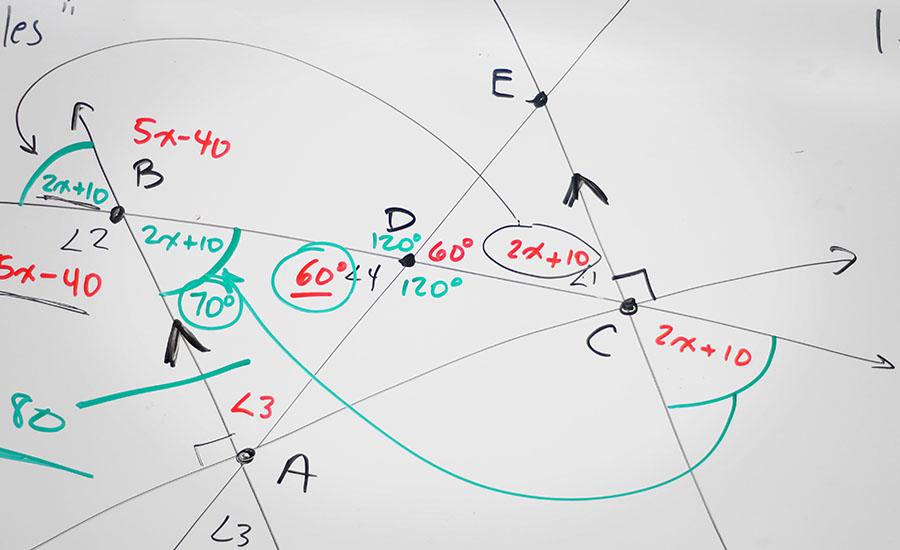Grades:
Kindergarten
Students will analyze shadows to determine how light moves and changes throughout the day.
Grades:
6th Grade
Summary Each of the first two Basic Handling lessons is approximately 5 minutes in length. The onboard “Flight Instructor” will instruct student trainees on what they should be doing and interacting
Grades:
3rd Grade, 4th Grade, 5th Grade, 6th Grade, 7th Grade, 8th Grade, 9th Grade, 10th Grade, 11th Grade, 12th Grade
In this hands-on lesson, students apply their understanding of the engineering design process to build a tower made of index cards that can hold an object. There is a link to a prerequisite lesson
Grades:
5th Grade, 6th Grade, 7th Grade, 8th Grade, 9th Grade, 10th Grade, 11th Grade, 12th Grade
Let's Fly is a great lesson for those teaching forces and motion. Find some balsa wood flyers through a STEAM source (ideas included), take your students outside to play and let them observe. Then
Grades:
6th Grade, 7th Grade, 8th Grade
Model Building For Disaster is a 4-6 week unit in which students research natural disasters around the world and their effect on developing countries. Following their research, student teams design
Grades:
4th Grade
In this hands-on lesson, students will construct a sturdy structure out of toothpicks and marshmallows that will withstand an earthquake simulation (a tray of Jello is used). This is an engaging way
Grades:
6th Grade, 7th Grade
Students explore the relationship between the speed(rate of travel) of an object, the distance it travels, and the amount of time it travels for. Teachers may use: A- Air rockets(from a previous
Grades:
4th Grade
Students will learn how weather and climate can impact planting in this second lesson out of 4. Agenda What is weather? What is climate? What is the difference between weather and climate? How will
Grades:
6th Grade, 7th Grade, 8th Grade
Summary: Students are coding and observing robots to try and determine all forces acting on the robot. Materials; Robots that can be coded to move in different ways. Laptops to code. Agenda The
Grades:
4th Grade
Students will be working together to clean up an oil spill. They will discover what an oil spill is, what causes it, and what the effects are. The simulation is made using tinfoil baking dishes
Grades:
7th Grade, 8th Grade
Summary: In groups students will construct a Rube Goldberg device made completely out of found objects that includes at least 5 simple machines and students will identify the energy transformations
Grades:
6th Grade
In this lesson, students will be learning about the challenges of farming in space for future settlements. Specifically they will focus on the difficulty of testing whether plants will grow in soil
Grades:
6th Grade
In this engaging lesson, students will use an online seasons simulation to explore how direct and indirect sunlight influence the seasons. They will graph daylight hours from cities located in
Grades:
6th Grade, 7th Grade, 8th Grade
Summary: This lesson uses the children's picture book Rosie Revere, Engineer by Andrea Beaty and can easily be adapted for any grade level. Students will listen to the story of Rosie Revere and
Grades:
5th Grade
This is the 2nd part in a 4-lesson series. This lesson is on the fins and how they work with balanced and unbalanced forces. Students will need the worksheet, the article for read and reflect, foam
Grades:
1st Grade
Students will grow to understand what decomposition is and why it is a vital part to their compost bins success.
Grades:
4th Grade, 5th Grade, 6th Grade
List of Materials- Science Notebook, Pencil/Pen, Reflection Questions Summary- Students are reflection and revising their egg drop protectors from the previous lesson. Agenda- Reflect on the first egg
Grades:
5th Grade
In this activity, students will make a model of the planets in the solar system and specifically model their distances to scale. Materials: Model of the Solar System-plastic 3D model String Push pins
Grades:
4th Grade, 5th Grade, 6th Grade
Summary- Students will redesign their egg protector for trial 2, record their observations, and respond to overall reflection questions for the project. Materials- Science Notebook Pencil/Pen
Grades:
8th Grade, 9th Grade, 10th Grade, 11th Grade
In this activity, students will perform a hands-on, inquiry-based investigation of the tradeoffs involved in hard rock mining. The object is to purchase and develop a mine, safeguarding the
Grades:
4th Grade
Students will engage in an activity that helps us understand the effect of fracking on the environment by digging for oil (chocolate chips) from their mining site (cookie). Agenda: Fracking pictures
Grades:
6th Grade
In this unit, students will study the effects of atmospheric pressure and air resistance on objects to engineer a landing apparatus to land cargo in space. They will then write a Claim based on
Grades:
7th Grade
In this engaging lesson, students will use 2-3 days to build a land yacht with Lego BricQ sets. They will test different winds and angles, and then use their lab to introduce Newton's third law of
Grades:
Kindergarten
Students will be able to observe and recognize that a thermometer is a device that is used to measure a change in temperature.
Featured Lesson Plans
Check out these notable lesson plans.

Grades:
4th Grade, 7th Grade, 9th Grade, 10th Grade, 11th Grade, 12th Grade
Students use Google Earth Timelapse to observe changes to glaciers over time before completing an investigation on the effects of melting sea ice and land ice on global sea level rise. This

Grades:
3rd Grade, 4th Grade, 5th Grade
This is the second lesson plan that goes with the series of four lesson plans for the book Song for a Whale by Lynne Kelly. This lesson focuses on vibrations, sounds, and music. The final project is

Featured
SNOW
Grades:
4th Grade
This lesson includes literacy, math, and art about snowflakes. Within math, students will dive into an analysis of angles within a common snowflake. Students will listen to an informational text about


